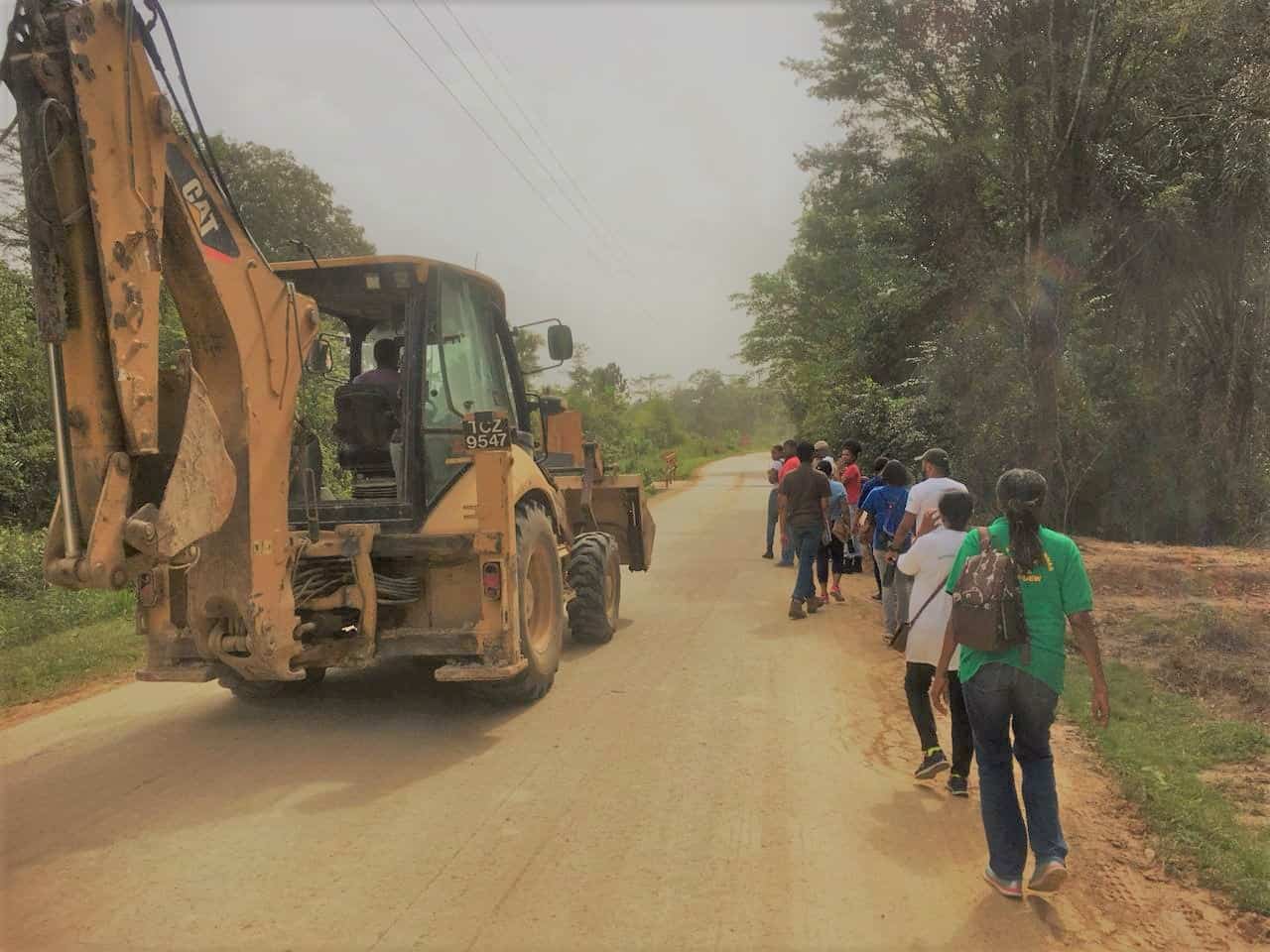In the National Environmental Policy (NEP 2018), the Government of Trinidad and Tobago outlines a vision for the environment in which natural resources are protected while being used sustainably towards the enhancement of the well-being of all citizens. A vision for the future- as indeed our past and current- begs for this more hopeful and sustainable approach.
In T&T’s 5th National Report to the United Nations Convention on Biological Diversity, our environment is described as being under threat, with the status of ecosystems (coastal and freshwater), major species and major ecosystem services all facing declining trends.
In 2016, T&T fell into the top 10 countries with the highest ecological footprint, which looks at how much productive land a person needs in order to produce the resources they need and absorb the waste they create. In 2010, the country had the world’s second highest per capita greenhouse gas (GHG) emissions rate, with carbon dioxide emissions more than doubling between 1990 and 2007. More than 33 percent of Trinidad and Tobago quarries operate illegally—with the country losing 20 percent of its watersheds in the past 25 years, and with large parts of its northern watercourses which, it should be emphasised, provide more than half of Trinidad and Tobago’s potable freshwater, being either polluted or overloaded with mine-based silt.
These impacts speak loudly to a country that has consistently prioritised economic growth over environmental sustainability despite the position stated in the latest iteration of the National Environment Policy that “development and the pursuit of peace, justice and strong institutions in Trinidad and Tobago must be done in a manner that strives to balance social, economic and environmental considerations.”
However, the increasing environmental degradation means the piper is being paid and paid most dearly by communities and groups already more vulnerable to environment-related disasters and risks.
In the European Commission-funded project ‘Enhancing Civil-Society Capacity for Governance of Environmental Transparency and Accountability in Trinidad and Tobago’s Extractive Industries,’ being implemented by The Cropper Foundation, in partnership with Environment Tobago, Fishermen and Friends of the Sea, the Network of Rural Women Producers and the Oilfields Workers’ Trade Union, more than 20 community and civil society groups have been brought together to increase their ability to participate in environmental governance, particularly in relation to impacts of extractive industries.
Over the past few months we have visited communities where people get sick because of dust from illegal quarrying but stay silent out of fear; we heard from a community where unchecked development is causing their taps to dry up from excessive water extraction; and bore witness to story after story about the hopelessness, uncertainty and inability that communities face when they interact with the national environmental legislative mechanism.
The juxtaposition is worrying – Trinidad and Tobago undoubtedly has some of the most progressive environmental legislation within the Latin America and Caribbean Region, particularly through the Environmental Management Act (2000), specifically in its establishment of the Environmental Management Authority and its onus to host public records, as well as the Environmental Commission, wherein any private party, group or individual can bring a civil action in regard to an environmental violation. This availability of information and the redress the law seemingly provides has not, however, resulted in environmental management that serves and improves the well-being of communities. It might be assumed, therefore, that a disconnect between availability and access has led to reduced participation of communities and civil society in environmental governance and the downward trends in Trinidad and Tobago’s environmental sustainability.
The Environmental Democracy Index 2015 highlights this weakness, with Trinidad and Tobago performing well on environmental transparency and access to justice, based on the existing legislation including the Freedom of Information Act, but performing poorly on citizen participation. In fact, various decisions on legal cases in Trinidad and Tobago’s courts and commissions, as well as the Privy Council have highlighted the gaps and need for enhancing public participation.
In the Environmental Commission’s ruling on Talisman (Trinidad) Petroleum Ltd. vs. The Environmental Management Authority (EA 003 of 2002), the Commission noted that public participation: “improves the understanding of issues among all parties; finds common ground and determines whether agreements can be reached on some of the issues; highlights trade-offs that must be addressed in reaching decisions; and improves the general understanding of the problems associated with a project, as well as the overall decision-making process.”

However, participation can only be positive when the public knows and understands the details being discussed. In the High Court case of Ulric ‘Buggy’ Haynes Coaching School and others v Minister of Planning and Sustainable Development, the court importantly noted that “Consultation is not only about objection but is also about representations which may consist of questions, suggestions and proposals all with a view to assisting in arriving at the best possible plan which would benefit the various interests in the community and at the same time give effect to the government’s intention. It is about a participative balanced approach.”
It is therefore vital that civil society and communities have access to the necessary information in ways which allow for their understanding, absorption and contextualisation of the necessary information. Only through deeper understanding can communities and the public be represented in the best practice of consultation and with maximum sensitivity to access barriers and abilities. Current initiatives such as the Trinidad and Tobago Extractive Industries Transparency Initiative (TTEITI) and the global EITI’s growing focus on environmental information related to the Extractive Industries, as well as the movement to lift the lid on Beneficial Ownership of companies, all contribute to a growing drive to increase the transparency of one of the most influential sectors on environmental sustainability.
In response to the need to democratise information, the Regional Agreement on Access to Information, Public Participation and Justice in Environmental Matters in Latin America and the Caribbean (known as the Escazu Agreement) was adopted in March 2018 and is a ground-breaking and binding legal instrument that seeks to ensure that persons have access to information that affects their lives, that provides them with avenues for justice, and which protects their fundamental human right to a safe environment. Trinidad and Tobago has not yet signed nor ratified this agreement, although many of the foundational structures are already in place.
In light of the Government’s laudable vision for a sustainable environment, the leaps towards a more transparency society, and the growing understanding of communities’ own needs to represent themselves, The Cropper Foundation urges the Government of Trinidad and Tobago to signal its readiness to truly embrace an informed public as its partner, through the signing and ratifying of this agreement. Information is more than ever regarded as a human right and a primary resource, and as one of the keys to a truly democratic system of governance. It cannot be treated, however, in the same way we have treated much of our valuable natural resources in the past – hoarded by a few with the benefits redounding to those who have more power and the rest trickling to those perceived to have less.





